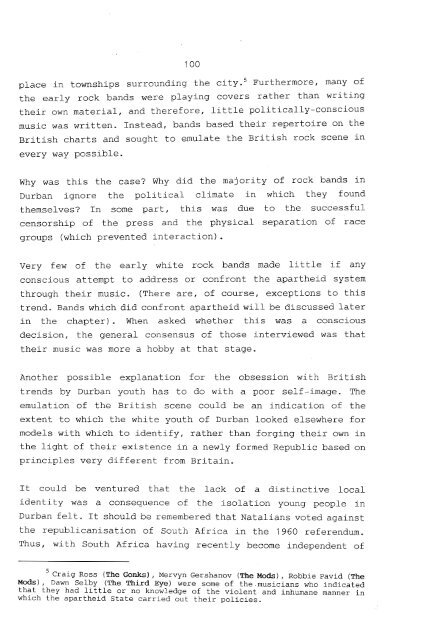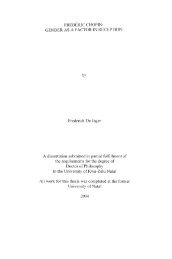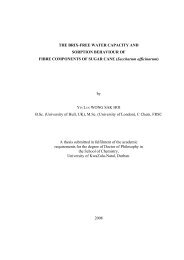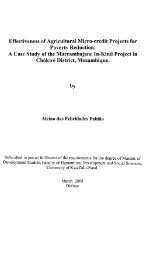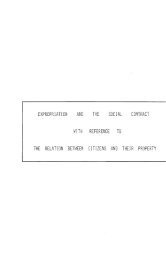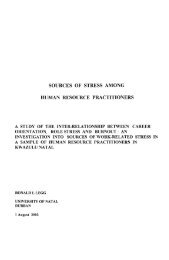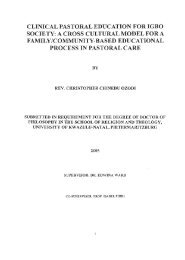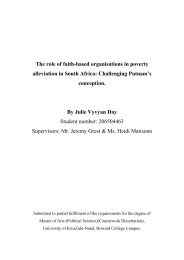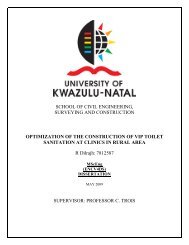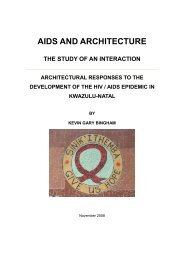FROM ROCK 'N 'ROLL TO HARD CORE PUNK - UKZN ...
FROM ROCK 'N 'ROLL TO HARD CORE PUNK - UKZN ...
FROM ROCK 'N 'ROLL TO HARD CORE PUNK - UKZN ...
Create successful ePaper yourself
Turn your PDF publications into a flip-book with our unique Google optimized e-Paper software.
100<br />
place in townships surrounding the city.5 Furthermore, many of<br />
the early rock bands were playing covers rather than writing<br />
their own material, and therefore, little politically-conscious<br />
music was written. Instead, bands based their repertoire on the<br />
British charts and sought to emulate the British rock scene in<br />
every way possible.<br />
Why was this the case? Why did the majority of rock bands in<br />
Durban ignore the political climate in which they found<br />
themselves? In some part, this was due to the successful<br />
censorship of the press and the physical separation of race<br />
groups (which prevented interaction).<br />
Very few of the early white rock bands made little if any<br />
conscious attempt to address or confront the apartheid system<br />
through their music. (There are, of course, exceptions to this<br />
trend. Bands which did confront apartheid will be discussed later<br />
in the chapter). When asked whether this was a conscious<br />
decision, the general consensus of those interviewed was that<br />
their music was more a hobby at that stage.<br />
Another possible explanation for the obsession with British<br />
trends by Durban youth has to do with a poor self-image. The<br />
emulation of the British scene could be an indication of the<br />
extent to which the white youth of Durban looked elsewhere for<br />
models with which to identify, rather than forging their own in<br />
the light of their existence in a newly formed Republic based on<br />
principles very different from Britain.<br />
It could be ventured that the lack of a distinctive local<br />
identity was a consequence of the isolation young people in<br />
Durban felt. It should be remembered that Natalians voted against<br />
the republicanisation of South Africa in the 1960 referendum.<br />
Thus, with South Africa having recently become independent of<br />
5 Craig Ross (The Genks) , Mervyn Gershanov (The Mods), Robbie Pavid (The<br />
Mods), Dawn Selby (The Third Eye) were some of the.musicians who indicated<br />
that they had little or no knowledge of the violent and inhumane manner in<br />
which the apartheid state carried out their policies.


